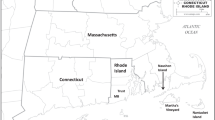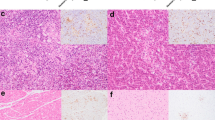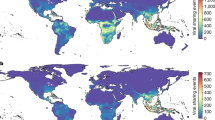Abstract
BRITISH red squirrels have suffered from epidemic outbreaks of unidentified disease at various times in the past, sometimes with mortality rates exceeding 90 per cent1. At Thetford Chase (Norfolk) sick and dying squirrels were seen recently with symptoms including paralysis of the hind legs. No grey squirrels are known in this area, so it was decided to attempt isolation of virus material from the red squirrel population to initiate a study of virus diseases affecting squirrels in Britain.
This is a preview of subscription content, access via your institution
Access options
Subscribe to this journal
Receive 51 print issues and online access
$199.00 per year
only $3.90 per issue
Buy this article
- Purchase on SpringerLink
- Instant access to the full article PDF.
USD 39.95
Prices may be subject to local taxes which are calculated during checkout
Similar content being viewed by others
References
Edwards, F. B., Vet. Rec., 74, 739 (1962).
Sanders, F. K., Huppert, J., and Hoskins, J. M., Symp. Soc. Exp. Biol., No. 12. 123 (1958).
Hamparian, V. V., Hilleman, M. R., and Ketler, A., Proc. Soc. Exp. Biol., 112, 1040 (1963).
Author information
Authors and Affiliations
Rights and permissions
About this article
Cite this article
VIZOSO, A., VIZOSO, M. & HAY, R. Isolation of a Virus resembling Encephalomyocarditis from a Red Squirrel. Nature 201, 849–850 (1964). https://doi.org/10.1038/201849a0
Issue date:
DOI: https://doi.org/10.1038/201849a0



